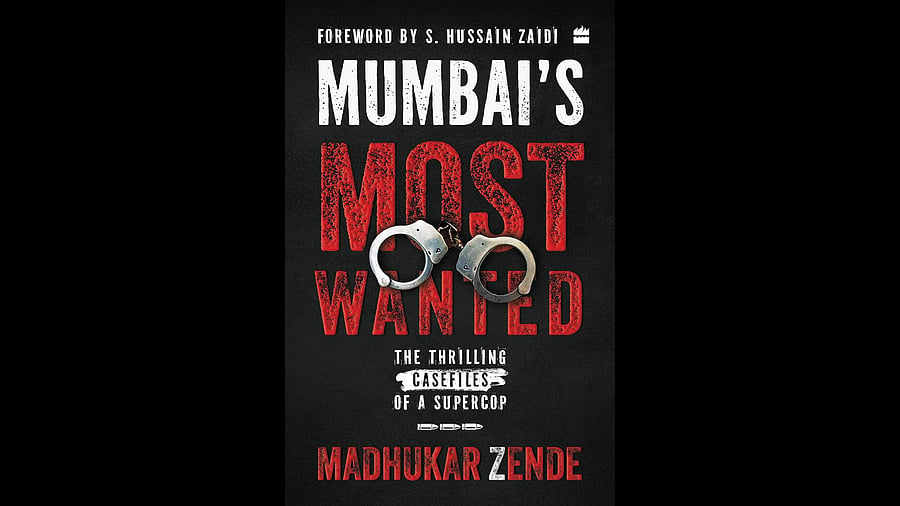
Mumbai's Most Wanted.
Retired Mumbai supercop Madhukar Zende made headlines when he astutely nabbed the international fraudster and serial killer Charles Sobhraj in Goa in 1986.
Not many know that Zende had arrested Sobhraj first in 1971 in Mumbai, but the crafty “serpent” slithered past authorities many times. Sobhraj’s arrest is a small part of a much bigger picture in Zende’s illustrious career as a fearless and upright police officer. He has far more consequential stories of crime and justice under his belt. Some famous ones are detailed lucidly in this book. Mumbai’s Most Wanted is more than a memoir; it delves into some high-profile case files of an exceptional cop who took on hardcore criminals, underworld dons, made high-stakes arrests, and managed deadly riots, ensuring speedy law and order. What stands out is the man’s pursuit of truth and fairness, and adoption of an empathetic approach to policing, qualities that endeared him to the public.
His humane qualities, notably giving criminals a chance to reform, moved some; they returned the favour with crucial leads about fellow criminals. Two important cases — one, the puzzling Shantha Devi murder in a Mumbai train and the 1971 arrest of Charles Sobhraj — were cracked with tips from convicted felons.
“In my experience, even jaded people and hardened criminals respect clear thinking, fairness and justice from a policeman, even if it works against them. What’s more, they are likely to reciprocate in kind.”
Zende was an ace in managing violent crowds and mayhem with courage and equanimity; most noteworthy was the communal riots that broke out in Mumbai following the demolition of the Babri Masjid in 1993. Mumbai was a hotbed of smuggling and underworld operations in the 70s and 80s. Battling such crime was a huge challenge for the cops. A defining act of defiance against a powerful criminal that underscored Zende’s commitment to duty was when he boldly arrested notorious smuggler Haji Mastan for assaulting a policeman. That was Mastan’s only conviction until his later arrest during the Emergency in 1977. In 1984, it was again Zende who arrested Mastan in Mumbai.
When Babu Reshim, one of Mumbai’s most-feared criminals and a close associate of Dawood Ibrahim, was brutally murdered by a rival gang, it fell on Zende’s lot to bring the culprits to book, which he accomplished after an exacting, relentless pursuit.
Zende’s genuine desire to serve people, making a direct impact on them, comes through brilliantly in the last chapter about Dharavi, Asia’s largest slum with a high rate of crime and violence. Motivating junior cops with incentives, organising outreach programmes to quell communal violence, offering free rides to schoolchildren in the police jeep and improving the lives of the slum dwellers helped restore peace and build trust among the community.
Amidst the narratives about crime, riots, gang wars, investigations and arrests, it was amusing to read how an elephant was ‘arrested’ by Zende. How the supercop outsmarted the jumbo and won applause from the crowd that watched this ‘arrest’ is a thrilling and enlightening read.
Zende’s recounting of his stories is unpretentious, backed by his sterling performance.
As one who always dreamt of being a police officer and with a “firm conviction to do the right thing,” Zende’s story is truly inspiring, a wonderful insight into the life of a supercop.